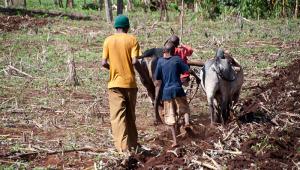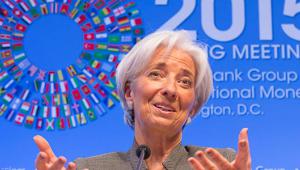By Nick Mann | 7 January 2013
Global economic uncertainty and climate change are the biggest risks to Africa’s economy but the ‘forces of destiny’ are on the continent’s side, International Monetary Fund managing director Christine Lagarde said this weekend.
Speaking during a visit to Malawi, Lagarde said Africa was at risk from the persistent ‘global turmoil’ through its trade, aid and other financial connections with Europe, the US and China. A sustained global slowdown of two percentage points of gross domestic product would reduce growth in sub-Saharan Africa by around 1.25 percentage points a year, she said.
‘Let us also not forget the threat from food prices and food scarcity. So far, rising global food price pressures are concentrated in a few crops like maize, soya beans and wheat,’ she added. ‘But drought and crop failure are becoming ever-present dangers in some areas, with grave consequences for livelihoods and even lives.’
These challenges would only get bigger as climate chance continued its rapid advance, she said.
Despite this, Lagarde said she was ‘optimistic’ about Africa ‘because the region has great potential, and because the forces of destiny are on its side’.
Growth on the continent was second only to emerging Asia over the past decade or so and sub-Saharan Africa had ‘held up well’ during the global economic crisis. Sub-Saharan Africa is forecast to grow by 5.25% this year, with low-income countries growing by around 6%.
In particular, Lagarde noted African countries’ success in reducing their debt levels from more than 100% of GDP to under 40% since 2000, as well as more than doubling their foreign exchange reserves and halving inflation.
‘Because of this, two-thirds of countries in the region were able to pursue expansionary policies during the crisis – letting deficits expand instead of slamming hard on the brakes,’ she explained. ‘Two-thirds of countries were able to increase real spending on health and education, drawing a circle of protection around the most vulnerable people.’
She also hailed the continent’s increased trade with ‘non-traditional’ partners – and China in particular – as well as the doubling of intra-regional trade seen since 2000.
To capitalise on its prospects, Africa must accelerate structural change to increase productivity in agriculture and make its manufacturing and services sectors more competitive. Lagarde also called for ‘more inclusive’ growth and job creation, better management of natural resources and stronger financial sectors.
‘I am confident about this future, but I want all countries to benefit from it,’ she said.













